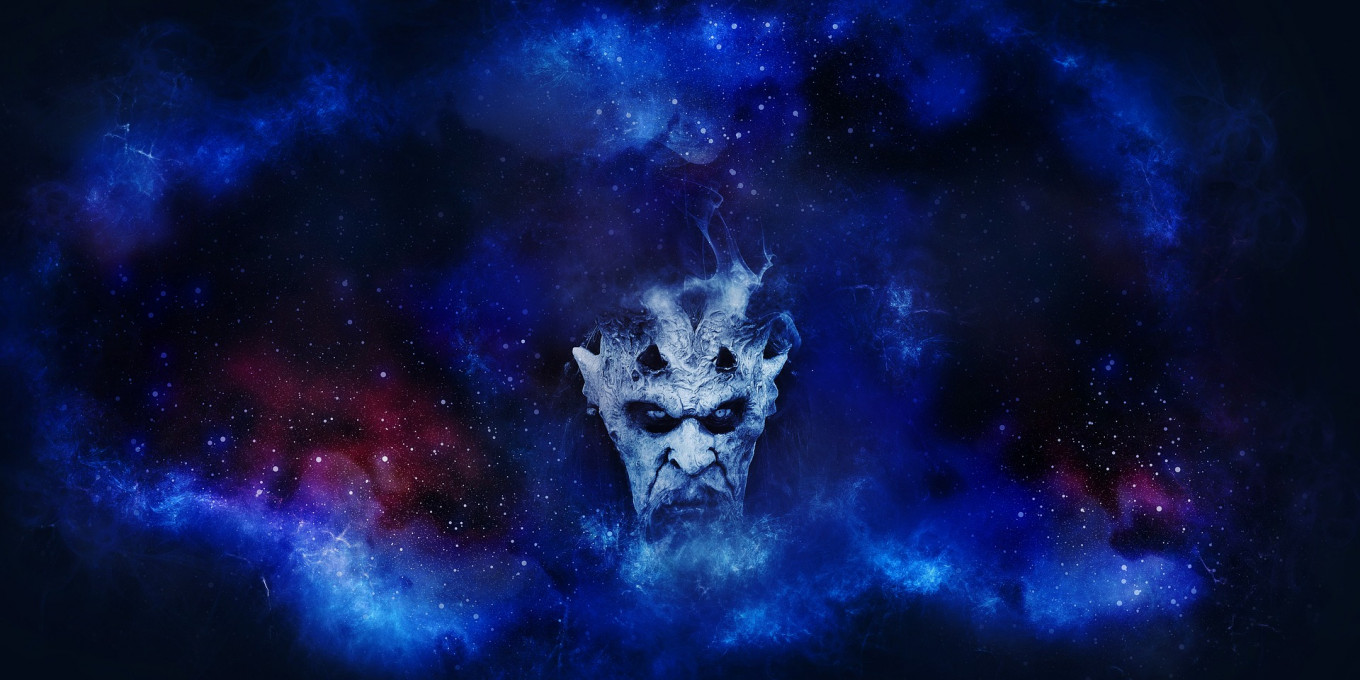With debates raging over “fake news” in the U.S. and Europe, the Western world is getting a fresh look at conspiracy theories and disinformation. In Russia, however, conspiracy theorists have enjoyed prominent positions in political culture since the collapse of the Soviet Union. To acquaint readers with this rich history, The Moscow Times reviews the major branches of “conspirology” in Russia today: the strange, the offensive, the outlandish and (sometimes) the widely accepted.
The USSR's ESP WMD
For years, politicians and pundits in Moscow have denounced NATO’s alleged “encirclement” of Russia, and the supposed CIA-engineered fascist junta controlling Ukraine is just the most recent evidence of Washington’s dastardly plans.
Some of these fears can be traced to a sensationalistic “report” released in 1993 that described a supposed plot by the CIA at the height of the Cold War to destroy the Soviet Union from within.
The plot, named after former CIA Director Allen Dulles, is a fiction, from start to finish. Nearly the entirety of the report was lifted, word for word, from a 1971 novel written by Anatoly Ivanov, titled “The Eternal Call.”
In the book, the story’s villain gives a long-winded description of how the United States hoped to destroy the Russian people by corrupting their cultural values. The assault would focus mainly on Soviet cinema and literature, with U.S. agents planted in Russian society to promote violence, greed, hedonism and other vices through the arts.
In June 2015, a Russian court actually banned the phony report, qualifying it as “extremist,” but the document continues to influence popular perceptions of the West to this day.
The Russian authorities have also promoted their own conspiracy theories, such as the fictional “Albright Declaration,” which claims that former U.S. Secretary of State Madeleine Albright once said Siberia’s natural resources are too important for the global economy to be left in the hands of the Russian Federation.
This story is also fake, but its origins prove that truth is often stranger than fiction: the allegations are actually that Albright merely thought about seizing Siberia, not that she ever stated this openly.
In a December 2006 interview with the state newspaper Rossiiskaya Gazeta, retired KGB General Boris Ratnikov said that he had taken part in a secretive occult project funded by the Soviet secret police.
“In the Soviet Union,” he said, “almost all people with supernatural powers were controlled by the KGB.” Supernatural Soviets, he said, were used throughout the Cold War as a bulwark against the West. And what was Ratnikov's power? Mind-reading.
“In Madame Albright's mind, we found a pathological hatred of Slavs,” Ratnikov told Rossiyskaya Gazeta. “She resents the fact that Russia has the world's largest mineral reserves.”
Russia: America's 51st State
The Albright Declaration is bizarre, but there's an even grander theory that actually enjoys more mainstream support: the belief that the Russian Federation exists as a colony of the United States.
According to the National Liberation Movement, a pro-government ultra-nationalist group, Russia has been occupied by the U.S. since the collapse of communism. Ever since, this organization says, the CIA has been ghostwriting legislation passed in Moscow.
Remarkably, the head of this movement, Yevgeny Fyodorov, is himself a federal lawmaker in the State Duma. In 2014, he tweeted, “Russia, just like Ukraine, is occupied. In Ukraine, [the occupation] has simply entered a military phase.” According to Fyodorov, Russia’s parliamentarians “are simply officials in occupied territory.”
George Soros Superstar
One of the most widespread alternatives to conspiracy theories about plots by the CIA is the notion that Zionists are planning to take over the world by manipulating the international financial system.
Since the Tsarist era, concerns about Jewish entrepreneurs have found fertile ground across Eurasia. One of the most notorious theories, the Protocols of the Elders of Zion, which claims that a shadowy Jewish elite is plotting the destruction of the Christian world, first emerged in Russia, allegedly created by the Okhrana (the tsar’s secret service) to discredit the Russian Empire's growing political reform movements.
Anti-Semitic narratives gained increased popularity during the Russian Civil War (1917-1921), when counterrevolutionaries spread propaganda characterizing the Bolsheviks’ power seizure as a Jewish plot, whose leaders (including Leon Trotsky) wanted to undermine the foundations of the Russian Empire.
In today’s Russia, the Kremlin uses similar techniques to discredit those who advocate democratic reforms across the post-Soviet space. The so-called “color revolutions” in Georgia, Ukraine, and Kyrgyzstan (where mass protests ousted largely corrupt, autocratic regimes) spooked the Kremlin into a defensive posture. Tapping into old conspiracy theories about Jews, the Kremlin has long tried to discredit the color revolutions by tying them to Jewish billionaire George Soros.
Even this week, Russian state media have embraced reports that worldwide women’s demonstrations against the inauguration of Donald Trump were “sponsored by Soros.”

Satanic Groceries
While the Russian Orthodox Church has long waged a crusade against “Satanism,” some Orthodox believers have taken that battle to extremes.
Members of a breakaway sect known as the Old Believers would sometimes even set themselves on fire, rather than submit to reforms by the Church they considered to be “Satanic.” This sect later found the atheism of the Soviet regime so repulsive that one family of Old Believers actually set off into the remote mountains of Siberia to live apart from Soviet society. They lived in isolation for decades, unaware that World War II ever took place, until they were discovered by geologists in 1978.
In 2007, however, the fight against Satan found a new frontier: barcodes.
The company Russkoe Moloko (Russian Milk), owned by ultraconservative entrepreneur Vasily Boyko-Veliky, began placing red stamps over barcodes on its milk cartons, in an effort to ward off the devil, the company said.
A devoutly religious man, Boyko-Velikiy not only insists that his employees attend church services, but he also added the suffix “Velikiy” (The Great) to his otherwise commonplace surname.
“It's long been known that the barcode on all products bears the mark of the devil – it always contains three invisible sixes (666), which is the name of the Antichrist,” the company explained in a statement published online.
The Universal Product Code system, which is how barcodes work, designates the beginning, middle, and end of every barcode in “sixes.” This technicality became such a concern to some in Russia that the head of the Russian Orthodox Church, Patriarch Kirill, even released a statement in 2008 clarifying the matter:
“The use of personal tax reference numbers or other documents containing barcodes is not an acceptance of the mark of the beast.”
Nevertheless, some Orthodox Russians continue to throw out their food packaging as soon as they can, to rid their homes of potential demonic paraphernalia.

Beware the Reptilian Overlords
As if all these theories weren't enough to scare the average Russian, there's one more worth mentioning, too: the threat of reptilian overlords.
Russians can thank Svetlana Peumonova, former chair of the “Will” political party, for this one.
When Peumonova ran in Moscow's 2013 mayoral election, she claimed that reptiles from the fictional planet Nibiru resided in the Zhiguli Mountains in southern Russia, after wiping out an ancient Slavic civilization — a society that is, in Peumonova’s view, the root of all humanity.
The only reason historians have no knowledge of Russia’s core role in human history, she argued, is because those cunning reptiles destroyed all traces. And they are still plotting the end of the human race, Peumonova warned, though she graciously offered salvation to those willing to pay a fee.
Peumonova referred to herself as the Messenger of the Sun and led a reptilian-overlord-themed cult in the Samara region. Last year, Russian special forces raided her headquarters, scaling the 3-meter barbed wire fence surrounding the compound and shooting the guard dogs. She was absent, however, and remains on the police’s wanted list.
These theories may sound unbelievable, but in an era in which the U.S. public is discussing “alternate facts” with a straight face, the “menace of unreality” may prove to be an increasingly powerful force around the globe.
A Message from The Moscow Times:
Dear readers,
We are facing unprecedented challenges. Russia's Prosecutor General's Office has designated The Moscow Times as an "undesirable" organization, criminalizing our work and putting our staff at risk of prosecution. This follows our earlier unjust labeling as a "foreign agent."
These actions are direct attempts to silence independent journalism in Russia. The authorities claim our work "discredits the decisions of the Russian leadership." We see things differently: we strive to provide accurate, unbiased reporting on Russia.
We, the journalists of The Moscow Times, refuse to be silenced. But to continue our work, we need your help.
Your support, no matter how small, makes a world of difference. If you can, please support us monthly starting from just $2. It's quick to set up, and every contribution makes a significant impact.
By supporting The Moscow Times, you're defending open, independent journalism in the face of repression. Thank you for standing with us.
Remind me later.






